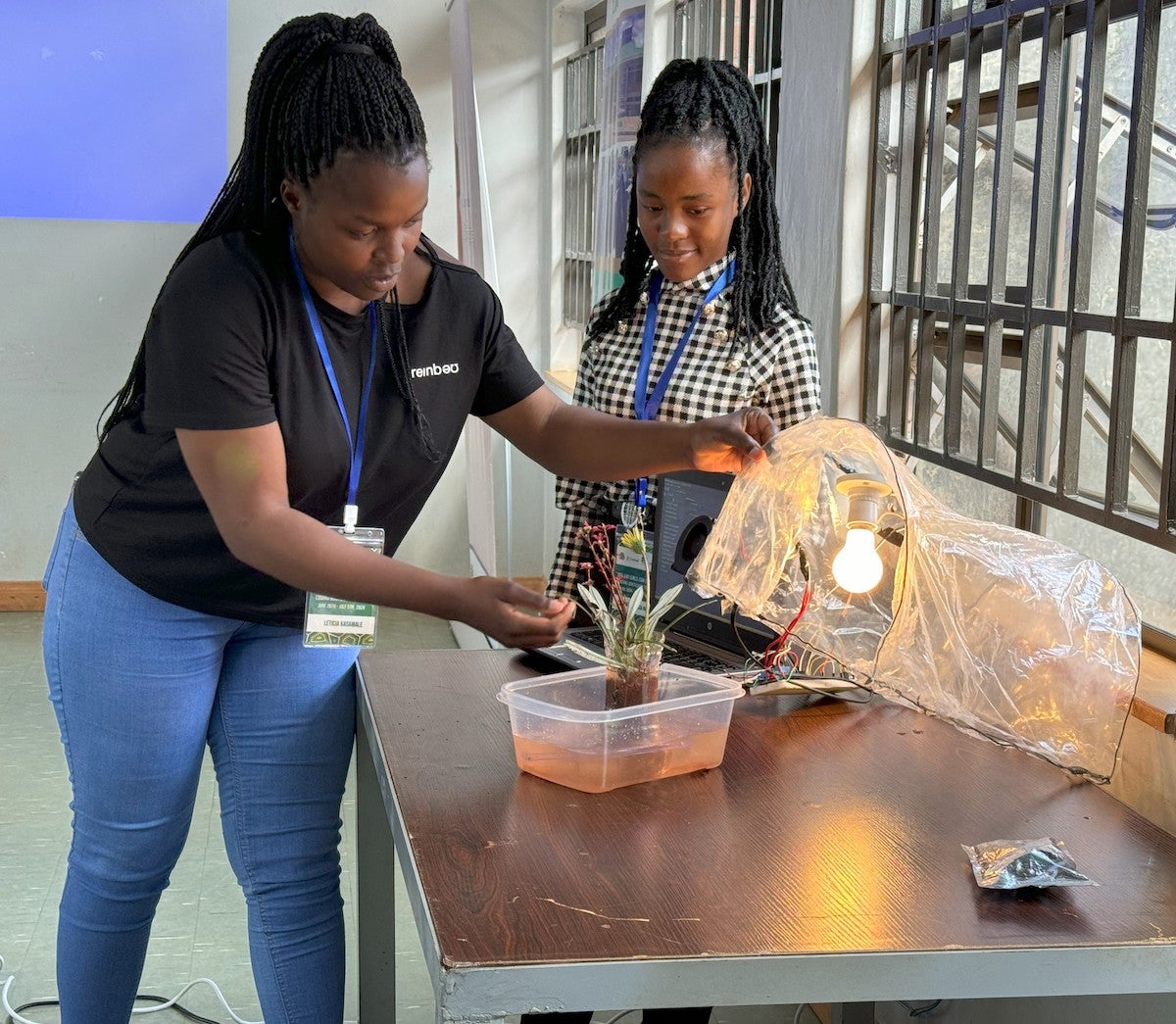Empowering the next generation: The impact of Malawi Girls Can Code Too boot camps
Date:

In a room full of eager faces, 22-year-old Ivy Gondwe proudly holds up an iPad, explaining with excitement how she turned her ICT training into a tangible achievement: developing her own mobile app. She stands before a group of young women at a bootcamp, where her story sparks hope and inspiration. Ivy’s journey is exceptional, but her story is one of many unfolding across Malawi, where young women and girls are defying the odds, using technology to transform their futures.
For most girls and young women in Malawi, especially in rural areas, access to technology remains a distant dream. While some urban schools offer computer lessons, digital literacy rates are staggeringly low, particularly for young women. In rural communities, girls and young women often have little to no exposure to ICT, limiting their ability to use technology to address gender inequalities or unlock new opportunities. According to data[1], men are three times more likely to possess computer skills than women, with only 2% of women proficient compared to 7% of men. The disparity is even more glaring in STEM fields, where only 25% of researchers in Malawi are women.
The future, however, holds promise. The "Malawi Girls Can Code" project, spearheaded by UN Women in collaboration with the Ministry of Education and the Ministry of Gender, and funded by the Irish Embassy, is changing the digital landscape for girls and young women across the country. Through a series of regional boot camps, 122 girls have already acquired skills in coding, entrepreneurship, robotics, and digital literacy.
The initiative began in April 2024 in Dowa, where 27 girls took their first steps into the world of coding and robotics. Among them was Ivy Gondwe, who marveled at the experience. "I never thought I could understand coding," she reflected. "But this bootcamp has shown me that if I put my mind to it, I can achieve anything."
Just two months later, a second bootcamp in Mzuzu drew 45 girls from diverse backgrounds. For many, it was their first time using technology beyond basic computer skills. One participant, Grace Manda, a 23-year-old intern at the Ministry of Gender, shared her awe at learning to create an AI platform. “I never imagined I could develop a mobile app,” she said. Grace now plans to build a website for her business, selling locally made crafts, and sees the skills she gained as a game-changer.
UN Women’s partnerships with the private sector and academia have been crucial in delivering these bootcamps. Facilitators like Precious Msonda have witnessed first-hand the transformative power of digital education. "These young women have so much potential," she said. "The skills they’ve gained here could change their lives and help them build careers that were once unimaginable."
The final bootcamp took place in July at the Malawi University of Science and Technology in the southern region of the country, where 50 girls engaged in hands-on activities like coding, graphic design, and digital technology. These immersive experiences are not only providing essential skills but also building confidence of young women.
The "Malawi Girls Can Code" project is still in its early stages, but the impact is already being felt. Many of the girls and young women are not just learning – they’re creating. They’re developing apps and digital solutions that have the potential to benefit their communities and challenge gender disparities in the tech industry. With mentorship and continued support, these young women are on track to become Malawi’s future digital leaders.
As Africa industrializes, with 90% of future jobs requiring ICT skills, empowering girls through technology is the key to ensuring they are not left behind. The "Malawi Girls Can Code" initiative is laying the foundation for a more equitable digital future, where young women are at the forefront of innovation and change.
Through the bootcamps, girls and young women are coding their way to a brighter future.